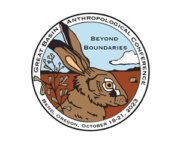FEATURED: “In His Footsteps: Tom Connolly’s Legacy in Oregon Archaeology”

Today’s featured GBAC symposium is “In His Footsteps: Tom Connolly’s Legacy in Oregon Archaeology,” organized by Jaime Kennedy and Andrew Boehm. After 40+ years, Tom Connolly recently retired as the Director of Archaeological Research at the University of Oregon’s Museum of Natural and Cultural History. In addition to extensive work on the Pacific Coast and western inland valleys, his contributions to Great Basin archaeology span several decades. Tom’s research on perishable artifacts, lithics, and his decades-long collaborations to refine regional cultural chronologies spurred significant developments in our understanding of the Great Basin in deep history and will undoubtedly influence the trajectory of the discipline for years to come. He’s literally written the book on Oregon Archaeology and inspired generations of academic, agency, and CRM archaeologists. This symposium honors Tom’s legacy through a series of papers presented by friends, colleagues, and others influenced by his impressive career. We would like to take this opportunity to acknowledge three Mojave-level sponsors: the Far Western Foundation, Paleoscapes Archaeobotanical Services Team, and Thunderstones Lithic Consulting. The Far Western Foundation was established to advance the study and appreciation of western North American archaeology, ethnography and history, and provide avenues for individuals and organizations representing diverse cultural…
